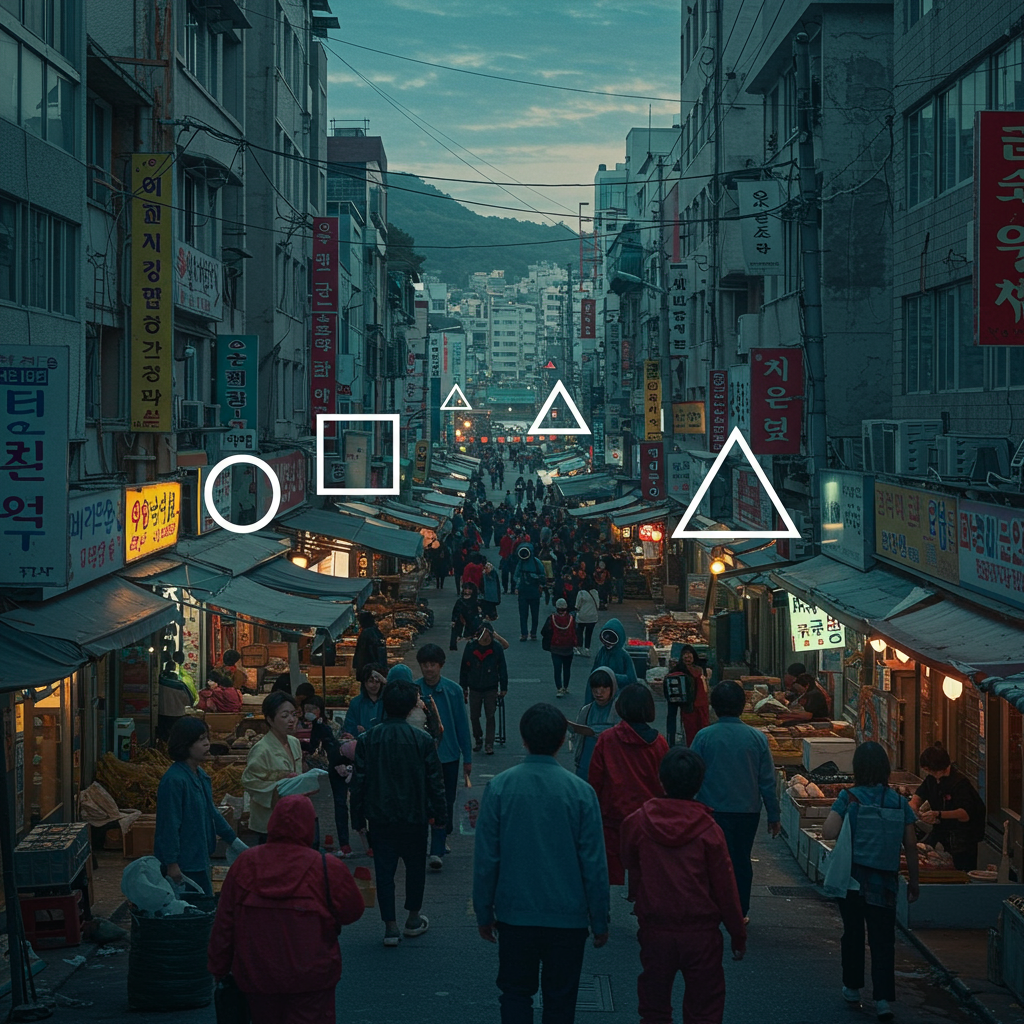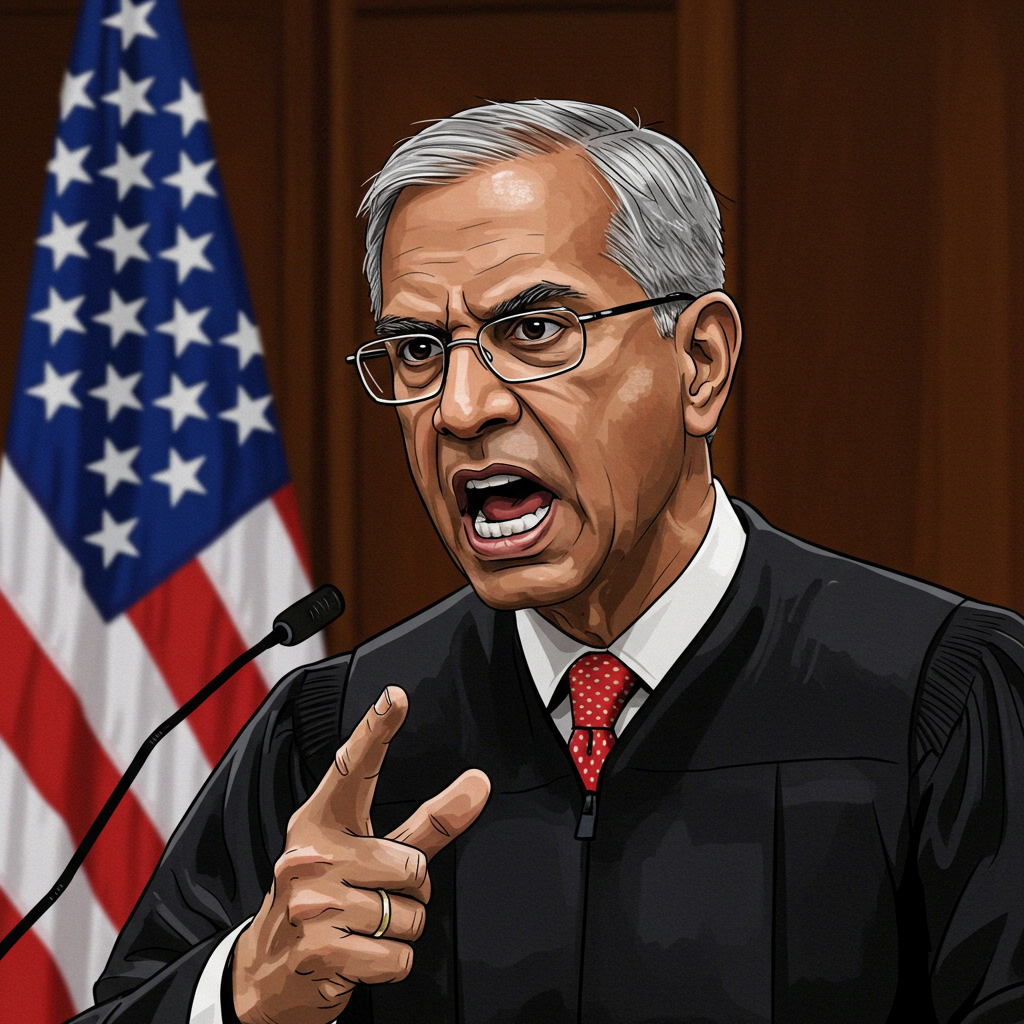Netflix’s global phenomenon, “squid Game,” captivated millions worldwide with its brutal, high-stakes survival games. Yet, for viewers in south Korea, where the fictional deadly competition is set, the series resonated on a much deeper level. Beyond pulse-pounding entertainment, “Squid Game” served as a stark mirror reflecting unsettling realities and anxieties deeply embedded within modern korean society. The show’s immense success sparked national conversations, influencing everything from protests to industry investment and exposing the immense pressures underlying the nation’s booming cultural wave.
The Deep Roots of Korean Societal Critique in Media
The sudden international rise of South Korean dramas and films critiquing capitalism might seem recent. However, experts argue this trend has been developing domestically for decades. Dr. Sung-Ae Lee, a Korean popular culture specialist, explains this artistic focus stems from South Korea’s exceptionally rapid and tumultuous social evolution. The country transitioned swiftly from mid-20th century military dictatorships through intense capitalist industrialization. This led to a form of democracy in the 1990s.
From Turbulent History to Deep Inequality
Despite democratic progress, South Korean society retains characteristics often described as feudal. Wealth and power remain heavily concentrated among a tiny elite, estimated at just 1% of the population. This structure results in extremely limited social mobility for many citizens. While censorship laws eased around the turn of the century, overt criticism of political and economic systems remained sensitive subjects. Explicit critiques of capitalism only became more prominent in media from the 21st century onwards.
Early Film Echoes Social Issues
Before “Squid Game,” earlier cinematic works paved the way for this commentary. Bong Joon Ho’s 2007 film, “The Host,” for instance, used the monster genre. It commented on foreign economic manipulation, environmental pollution, and military intervention’s negative impacts on lower classes. Bong’s “Parasite” (2019) depicted a lower-class family’s infiltration into a wealthy household. This film notably became the first non-English film to win the Best Picture Oscar. This highlighted the global resonance of critiques against social inequality first explored domestically.
Squid Game’s Stark Reflection of Neoliberal Anxieties
According to Dr. Lee, “Squid Game” specifically articulates anxieties tied to “neoliberal capitalism.” The series spotlights critical issues prevalent in South Korea. These include precarious employment, where workers are often seen as disposable. It also depicts huge income inequality. The show portrays the perceived callousness of the rich. It suggests that aspirations to basic wellbeing are often futile for those struggling. Unlike many conventional dramas, “Squid Game” notably avoids a typical “happy ending.”
Games as Metaphor for Real-Life Struggle
The deadly children’s games in the series serve as potent metaphors. They represent the brutal competition and desperate measures individuals face in a society driven by extreme financial pressure. Players are driven to the brink by overwhelming debt. Their participation reflects a lack of viable options in the outside world. The stark contrast between the lavish, detached lifestyle of the game’s orchestrators and the players’ desperation underscores the show’s critique of wealth disparity and systemic cruelty. The voting mechanic, where players could theoretically leave but are often compelled to stay by their circumstances, mirrors real-world dilemmas faced by those trapped in difficult economic situations.
Real-World Impacts and Unexpected Ripples
“Squid Game”‘s influence extended far beyond television ratings. Actor Wi Ha-joon noted the show’s international attention boosted foreign investment in the Korean film and TV industry. This influx of capital has led to improved production conditions and overall quality. The series also significantly impacted global reality television. Netflix produced a direct adaptation, “Squid Game: The Challenge.” Rival shows, like Amazon’s “Beast Games” inspired by YouTuber Mr. Beast, also emerged. While these removed the lethal stakes, “Beast Games” reportedly faced lawsuits over contestant harm.
Beyond the Screen: Protests and Commercial Irony
Perhaps most tellingly, “Squid Game”‘s imagery was adopted in real-world protests in South Korea. Members of the Korean Confederation of Trade Unions donned the guards’ distinctive pink jumpsuits. They demonstrated against poor pay and working conditions in late 2021. Creator Hwang Dong-hyuk himself drew parallels between the show and reality. He linked Season 2 to South Korean political turmoil, including discussions around martial law. He urged Koreans to protest, suggesting watching the show might feel like watching the news.
Ironically, a show fiercely critical of capitalism became a massive global brand. The demand for “Squid Game” fueled extensive commercial partnerships. Its green and pink branding appeared on everything from fashion (Crocs, Puma) to food (McDonald’s Dalgona meal). Netflix reported over 100 such collaborations. Hwang candidly stated his motivation for creating more seasons was “Money.” He explained his initial Season 1 contract did not heavily compensate him for its massive, unexpected success.
Hallyu’s Darker Side: Celebrity Pressure and Tragedies
South Korea’s cultural wave, known as Hallyu, is a major global success. It’s a vital economic and diplomatic asset for the nation. However, this lucrative wave has a significant darker side. It is marked by immense pressure, intense online harassment, and tragic celebrity deaths. These deaths are often ruled as suicides. Hallyu’s value has soared, partly due to sustained government investment. It serves as powerful “soft power.”
The Weight of National Representation
The immense pressure on Hallyu stars is undeniable. A series of recent deaths highlights this crisis. Actress Kim Sae-ron died at 24 in February 2025, reportedly by suicide. She struggled after a DUI conviction and faced severe online criticism. Lee Sun-kyun, a star of “Parasite,” also died by suicide in December 2023 during a drug investigation. Experts note drug allegations bring harsh legal penalties and intense social condemnation in Korea. Other tragic deaths include K-pop stars Moonbin (2023), Sulli (2019), Goo Hara (2019), and SHINee’s Kim Jong-hyun (2017).
Experts attribute this pressure partly to celebrities’ status as national assets. They represent the nation’s success globally. Ramón Pacheco of the KF-VUB Korea Chair compares them to elite athletes due to this pressure and required discipline. Ester Torres-Simón of the Autonomous University of Barcelona notes their direct economic influence makes escaping pressure difficult. Traditional Korean views expect celebrities to be “models of perfect behavior.” This standard is increasingly difficult to meet.
Online Scrutiny and Broader Societal Issues
The nature of online criticism in South Korea is distinct. It reflects the country’s advanced technological integration. Large, Reddit-style forums are deeply embedded in daily life. They are used for activism and public figure criticism. Their social relevance exceeds typical Western social media bubbles.
Philosopher Byung-Chul Han links South Korea’s high suicide rate to intense competitive and performance pressure. He argues solidarity is disintegrating, leading to depression. Individuals often blame themselves for failure. This leads to shame and suicide. Pacheco suggests social tensions manifest as internal violence (suicide) more often than external violence. While suicide rates remain high, they have decreased since the 2008 crisis. Korea is also more open about debating and recording suicide cases, potentially affecting reported figures.
Some experts believe younger Koreans have a different relationship with work and success than older generations. There are hints of change; musician Choi Seung-hyun (T.O.P.) received a major “Squid Game” role after a past marijuana conviction. This suggests a potential shift in the industry’s punitive approach. Yet, recent deaths underscore the severe challenges for those leading Korea’s cultural success.
Political Echoes and Future Seasons
Creator Hwang Dong-hyuk explicitly linked “Squid Game”‘s themes to current South Korean political events. At the Season 2 premiere in Seoul, he expressed a “heavy heart” due to political turmoil. He referenced President Yoon Suk Yeol’s recent, quickly retracted martial law declaration. He described the failure to impeach the president as “unfathomable.” Hwang urged citizens to protest. He deliberately “sharpened” the show’s “dark sociopolitical commentary” for Season 2. This responded to increasing global conflict and division. He stated watching Season 2 would feel like “watching the news.”
Hwang’s Vision: Entertainment with Purpose
Hwang maintained that the primary goal was to create “impactful entertainment.” He stressed the importance of the show being entertaining. However, his comments and the show’s themes highlight a deliberate attempt to reflect and comment on societal issues. Lee Jung-jae notes his character Gi-hun is “very changed” in Season 2. He is now “goal-driven” to end the game. Lee Byung-hun (The Front Man) sees the show’s universal appeal. It uses a “Korean subject” and “Korean games” but carries “universal” sentiment about society. Hwang also introduced more young cast members in Season 2. He explained that recent societal shifts like COVID-19 and the crypto boom have left young people facing extreme debt and seeking “a jackpot.” He feels society has become “more drastic,” making many feel like they are “spiraling downward.”
Frequently Asked Questions
What specific social issues did Squid Game highlight in South Korea?
“Squid Game” serves as a powerful allegory for numerous social issues in South Korea. It vividly portrays extreme income inequality, showcasing the vast gap between the ultra-wealthy elite and those struggling in severe debt. The series touches on precarious employment conditions, debt crises fueled by predatory lending, and a lack of social mobility that leaves many feeling trapped. It also highlights the intense pressure individuals face in a hyper-competitive society and the lengths people might go to escape financial desperation, reflecting deep-seated anxieties about neoliberal capitalism and its human cost.
What other Korean media are known for critiquing society and capitalism?
South Korean media has a history of societal critique predating “Squid Game”‘s international explosion. Director Bong Joon Ho is particularly renowned for this. His film “The Host” (2007) subtly criticized government bureaucracy and foreign influence through a monster narrative. His globally acclaimed film “Parasite” (2019) directly addressed class conflict and inequality by depicting a lower-class family’s scheme to infiltrate a wealthy household, winning international awards and bringing Korea’s critical cinema to a wider audience. These films, among others, demonstrate a long-standing tradition of using popular culture to examine the nation’s social landscape.
How has Squid Game impacted the Korean entertainment industry beyond viewership?
Beyond its record-breaking viewership, “Squid Game” significantly impacted the South Korean entertainment industry. Its global success led to increased foreign investment, improving production scale and quality for future Korean content. The show’s distinctive aesthetic and concept inspired numerous reality competition spin-offs globally, including Netflix’s own “Squid Game: The Challenge.” It also became a massive commercial brand, generating extensive merchandise and partnerships. While this brought significant profits to platforms like Netflix, it also sparked discussions about the irony of a show critical of capitalism becoming a capitalist juggernaut and raised questions about creator compensation.
Conclusion
“Squid Game”‘s global success was undeniable. However, its resonance in South Korea reveals a story far richer and more complex than simple entertainment. The series acted as a potent cultural mirror. It held up a reflection of the nation’s deep-seated anxieties surrounding economic inequality, relentless competition, and the pressures of modern life. By weaving these difficult societal issues into a compelling narrative, “Squid Game” didn’t just entertain; it provoked thought, fueled national dialogue, and demonstrated the powerful role popular culture can play in reflecting and commenting on the realities of its time. Its legacy extends beyond viewership numbers to its tangible influence on the Korean media landscape and its uncomfortable, yet crucial, commentary on the price of progress.




